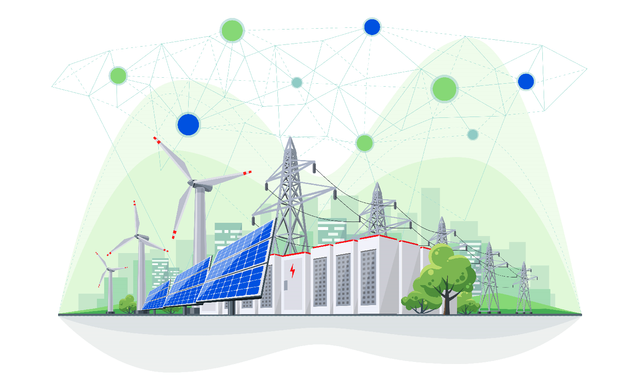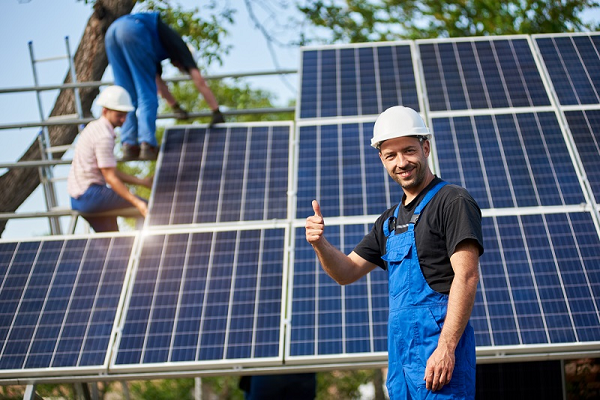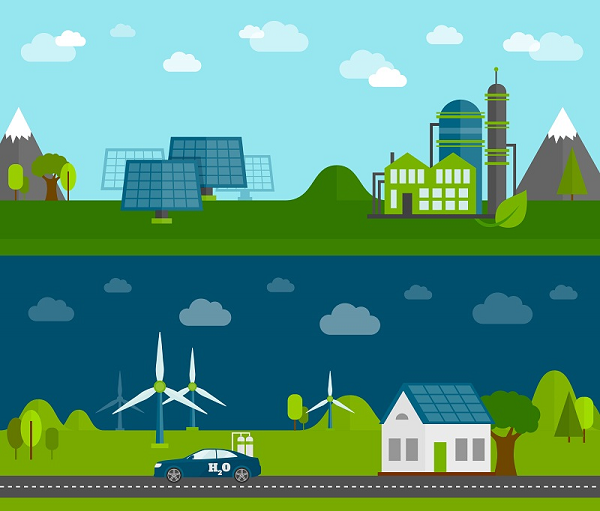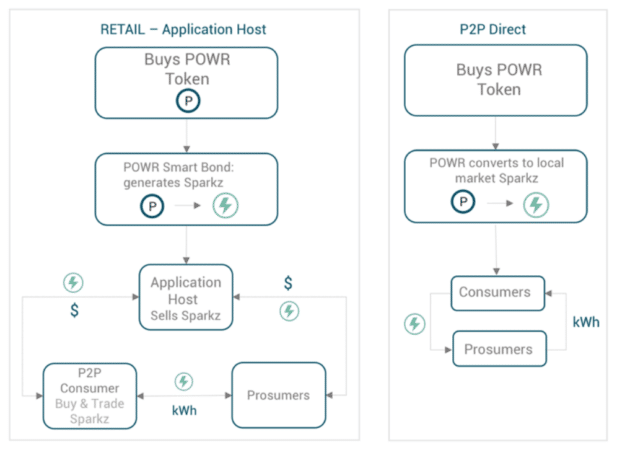Blockchain in the Energy Sector

Distributed ledgers, popularly known as blockchains are an emerging technology which has attracted the interest of note from pivotal energy firms, startups, financial institutions, technology developers, the academic community and even national governments as well. A significant number of sources from these different backgrounds have identified with blockchains and consider them as having a significant potential to deliver significant innovations and benefits. Blockchain is a system that can enable novel business solutions, more so, when combined with smart contracts as it promises a tamper-proof, transparent and secure system. We shall be looking at blockchains as it affects the energy industry.
Distributed energy production and consumption
The global electricity market today has an estimated worth of almost 2 trillion USD and it is monopolized by just a few corporations. These monopolies, however, seem to be losing their stronghold in recent times as more people continue to generate their own wind and solar energy. For example, smart grids now allow producers, who are energy producers that also consume a portion of the energy they produce, to sell their excess peer to other people.
Blockchain has a significant role to play in order to ensure that there is an advance, as it makes certain that all the transactions are securely stored on the distributed ledger and is also executed with smart contracts. This will make it possible for the consumers to have an opportunity of scanning through the blockchain listings to find the best deals that are closest.

For example, a person residing in Texas, and has a neighbor with a solar panel, will find it more of a reality when compared to a person in New York.
This is quite an exciting and brilliant step in the correct direction. However, solar energy, may not actually serve as the perfect solution in the quest to entirely live off the grid. There are some cases in which people who are totally reliant on energy obtained from solar power must turn off certain other home appliances before they can make use of another one.
One other brilliant feature of using blockchain to keep a track on energy usage which is very impressive is the fact that it offers consumer transparency. An example is that when you buy or even rent a new apartment, you will be able to track every previous utility bill. It will be great instead of having to solely rely on estimates as provided by the seller or whoever is in charge. It is common knowledge that utilities can vary based on usage, but then, this might still serve as help for people in their budget and enable them to notice a need for new things such as change of windows or better insulation.
The use of blockchain in the energy sector also will as well mean that every single energy flow and business activity can be securely recorded on decentralized storage of every data. In addition, when smart contracts which control the system are combined with distributed ledgers that are safely documenting all activities, the impact will be positive and will be felt directly on the network and storage operations.
This decentralized energy transaction and supply system as well seems to have the potential to become an important player in the nearest future. As, when energy is generated in distributed generation facilities, it will be transported to the end users by means of smaller networks. The amount of produced and consumed energy will be measured by smart meters. On the other hand, smart contracts will control cryptocurrency payments, together with energy-trading activities through the blockchain. What this portends is that cryptocurrencies can be used by consumers to make pay limits for the supplied energy.
On a current basis, traders buy and sell energy on the exchanges with banks serving as intermediaries to take care of the transactions carried out by the involved parties. With blockchain based energy processes, on the other hand, all third parties including energy companies or banks for transactions will no longer be required. Customers will be empowered by the decentralized energy transaction and supply system to take care of their own consumption data and electricity supply contract as well.
Emerging Blockchain applications for energy
There are many initiatives, at a different state of advancement which aim to employ blockchain for energy application. One such application is Power Ledger.

In the current system, if anyone has solar or wind energy in excess, it can be sold back to the electric company; but then, a considerable amount of energy will be lost by the seller in the course of transporting it back to a central place until such a time that it can be sold to another person.
Power ledger serves as a P2P energy platform which provides consumers with solar panels an option of selling this excess energy to neighbors. Funny enough, but aptly so, it has been called the Tinder for solar energy. There, the energy is pre-purchased with the smart contract being left to carry out the remaining trading of the excess energy. The platform serves as an avenue of providing consumers with more control over any instant bill settlement or price, instead of them having to wait for about two months with the regular energy company.
There are two tokens which can be utilized by their ecosystems. Viz: Sparks and POWR. POWR tokens can be gotten via exchange, and they are ERC-20 tokens as well. Sparks, on the other hand, cannot be utilized except within the platform and it can be generated only when there is an entry of POWR into a smart contract escrow.

source: powerledger.io
Employing the use of the Power Ledger platform entails that a smart meter must have been installed in your home. This is so that the data gotten from it will be transmitted to the blockchain. This, in turn, will make your payments to be certainly directed to the correct channel. The importance of microgrids cannot be overemphasized as they can be employed to serve as an alternate energy source, especially in cases of emergencies when there may be issues with the main grid. These disruptions can be happening when natural disasters such as earthquakes, hurricanes or flood strike.
Power Ledger is just one of the many solutions which emerge in the market. Some others that can be mentioned are: Lo3, Solar Coin, Solo Energy, ASwytch, WePower, SunContract, Energi, Energy Coin, Powerpeers or GridSingularity.
Obstacles for Blockchain in Energy
The blockchain technology is still at an early stage, and the available blockchain platforms may be in some cases be somewhat expensive in use, slow and not scaling in an excellent manner.
New models emerging with blockchain also require some changes and adaptations in the current regulations.
Conclusions
The widespread use of blockchain in energy will ensure that cleaner energy will be produced with consumers having greater control and having more options to choose from when trying to structure deals that have to do with energy management, including transport, storage, or having access in case of natural disaster strikes.
The industry is changing, and there is quite a chance that soon the benefits of smart contracts and blockchain will enhance the way it works today.
Congratulations @cryptotruffle! You have completed the following achievement on the Steem blockchain and have been rewarded with new badge(s) :
You can view your badges on your Steem Board and compare to others on the Steem Ranking
If you no longer want to receive notifications, reply to this comment with the word
STOPVote for @Steemitboard as a witness to get one more award and increased upvotes!
Congratulations @cryptotruffle! You received a personal award!
You can view your badges on your Steem Board and compare to others on the Steem Ranking
Vote for @Steemitboard as a witness to get one more award and increased upvotes!